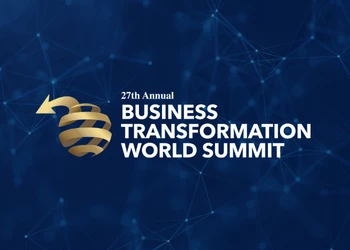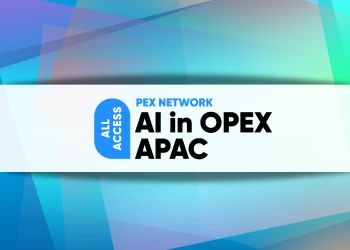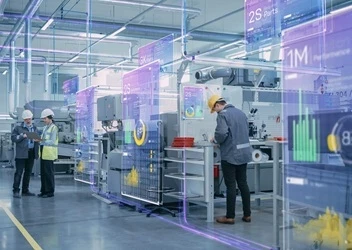Why Perfect Solutions Aren’t Always the Right Answer
Add bookmark“100% of the 50% right solution is better than 0% of the 100% right solution,†says Lisa Norcross, Senior Vice President of Operational Excellence, at European energy company E.On. “As long as you make some level of improvement, it's better than nothing, even if it's not perfect.â€
In this interview, part of a series with advisors to upcoming PEX and Performance Management conference, Norcross explains why it’s better to have people come up with their own solution – even if technically it’s not flawless – arguing that you’re building capability in the organization and there’s greater likelihood that improvements will be sustained. She also discusses the challenges facing her industry, taking operational excellence from a cost cutting exercise to something more holistic and sustainable, and how to build trust with the business.
PEX Network: What would you say are the biggest challenges confronting your industry at the moment?
Lisa Norcross: The energy industry is going through a period of unbelievable change at the moment, especially in Germany. We're a company that's headquartered in Germany and our biggest market is Germany, so this is a significant challenge for us.
Just to give you an example, in the last five years, wholesale electricity prices have dropped from around €66/Mwh to as low as €20/Mwh. There have also been significant changes in the German government’s energy policy, the so-called “Energiewende†or Energy Change; for example, they decided that all nuclear power plants must be closed down by 2022 and renewable energy now has a primary access to the grid. As a result, the whole industry is being completely turned on its head.
We're a large energy company and, historically, relatively slow moving. We have also, historically, been very profitable. But that world has completely changed in the last five to ten years. So as a business, we have to change the way that we work and become much more reactive and flexible to be able to cope with the changing external environment.
PEX Network: How would you say that those changes and challenges are affecting your operational excellence program?
Lisa Norcross: Our first operational excellence initiatives started in 2012 in a disconnected way in different parts of the business. They were a response to a very large cost-cutting program that was, in turn, being driven by this external shock.
Since then, I think we've developed from an emphasis on short-term cost-cutting, , to understanding that we have to be able to deliver continuous, sustainable performance improvement on multiple dimensions over the longer term. It's not just about cost, it's also about safety, customer satisfaction, quality, and so on.
This shift in emphasis has also turned it from a very technical and tools-oriented approach into much more of a holistic approach that also covers things like capability-building, how we are organised, leadership behaviours and how we actually manage the performance within the business. There's a much softer element to it now than there was in the beginning, because the longer you do this, the more that you realize it's not about having a few experts who know which tools to use. It's about having the right infrastructure in place and building the skills of the people in the operations so that they can identify which problems they need to solve and to choose which tools to use to solve those problems themselves.
PEX Network: What have been the biggest challenges in making that shift from a very focused cost-cutting-oriented approach to much more of a holistic way of thinking?
Lisa Norcross: I think one of our biggest challenges has been to build understanding at more senior levels that Operational Excellence is about more than process improvement and waste elimination. Fortunately, we have some senior executives in the more mature business units who understood this early on and they have been strong advocates within their peer group. We are making progress now on creating some “lighthouse†locations within the business that not only demonstrate what good looks like, but also show the business benefits of taking a more holistic approach.
Another challenge for the Operational Excellence itself is that E.ON is historically quite a decentralized company. The business units are used to being able to do their own thing, whereas what we've been trying to do over the last few years is to converge on one best approach for E.ON as a whole.
So for all of the business units that started doing operational excellence before we started to develop a group-wide approach, we've had to work with them very closely to, first of all, build trust, and then get to a position where we can actually influence the direction that they're taking. We’ve also had to work to define standards in such a way that we capture the most important elements whilst still allowing for local customisation.
PEX Network: What would you say worked well to build that trust with the individual business units?
Lisa Norcross: I think it's very important that they don't feel threatened and that they don't feel that you're trying to take something away from them or to somehow tell them what to do. Rather, you’re there to advise and to offer them support on something that they need or want help with. So we don’t come along and say “oh, you're doing this wrong, you don't need to do that.†Instead, we seek their input on new topics, or we help them to solve a problem that they have or we provide expert support for capability building. We’re also very open and transparent about what we’re trying to achieve.
PEX Network: My final question is what is the best piece of advice you've ever received about operational excellence?
Lisa Norcross: I'm not sure if anyone has ever actually told me this or whether it's something that I've somehow figured out for myself, but I think that when I was younger, I really thought that it was all about knowing the perfect technical answer to something and then making that happen. Actually, it's not really about having a technical answer, it's about being able to implement something in a way that's sustainable.
I think it's much more effective to build people's skills so that they can see the problems that they have and they can solve those problems using the right tools, and that they have the right knowledge and tools to sustain their solutions. It's much more effective if somebody can manage that improvement cycle themselves, whether on their own or with support, than it is for you to come along and tell them this is the perfect technical answer to the problem that they have. If people can figure out answers for themselves, it's much more likely that whatever they develop is the right solution for them and it's something that they can sustain over time.
I think this is also one of the things I used to see in consulting, where timelines are very short. Because of this the whole approach is quite aggressive in terms of ambition level. Then if people don’t understand what has been done, then is never going to be successful, because as soon as the project team walks away, everything is going to go back to how it was before.
PEX Network: So even if it takes longer for the people themselves to get to an answer - and maybe they don't come up with the perfect solution – if it’s something they’ve done themselves, it's something that will last?
Lisa Norcross: Exactly, I always think that 100% of the 50% right solution is better than 0% of the 100% right solution. As long as you make some level of improvement, it's better than nothing, even if it's not perfect.
[inlinead]




















